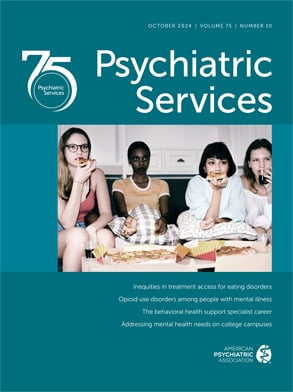In this issue Hamann and colleagues present an important perspective on the attitudes of psychiatrists in Germany toward shared decision making. The psychiatrists surveyed reported that they favored shared decision making when patients are well informed and compliant and when the decisions are related to psychosocial issues. They did not favor shared decision making when a patient's decisional capacity may be compromised and when decisions involve medical issues. Although the authors found reasons to be optimistic about their findings, we suggest that many psychiatrists in Germany, like those in other countries, remain oblivious to the ethical imperative to involve patients in preference-sensitive decisions about medical care. Like fish unable to discover water, many psychiatrists struggle to recognize their own paternalism.
Most medication management decisions involve multiple psychotropic agents with similar efficacy profiles and complex risk-benefit trade-offs. These decisions are not just medical decisions. They are personal decisions. The decision to risk metabolic syndrome, tardive dyskinesia, or reduced sex drive in exchange for symptom relief is not the psychiatrist's decision to make. These are difficult health care choices for which people need guidance and balanced decision support rather than paternalism. Shared decision making, decision supports, and decision aids empower a person to collaborate with his or her psychiatrist in making informed medical decisions that lead to the best treatment outcomes.
Psychiatrists worry about decisional incapacity among people who have major mental disorders. However, careful research in the CATIE study (Clinical Antipsychotic Trials of Intervention Effectiveness) showed that decisional incapacity is exceedingly rare. When research participants were provided detailed information, over 96% understood the information and were considered competent to make an informed choice about participation. Legal statutes already exist to guide proxy decision making in cases where decisional incapacity has been established. What we object to is the circular reasoning that often occurs in clinical situations: When the client is compliant, shared decision making is a virtue; when there is disagreement about treatment, the client "lacks insight" and shared decision making is a risk.
It is time to take the high road and heed the ethical imperative upon which the practice of shared decision making rests: Autonomous adults have the right to determine what happens to their bodies and minds. "My body, my mind, my choice," as the consumer-survivor movement calls it. Shared decision making, decision supports, and decision aids empower and enable adults with psychiatric disabilities to collaborate with psychiatrists in making tough health care choices. We must put the person back at the center of person-centered care.

